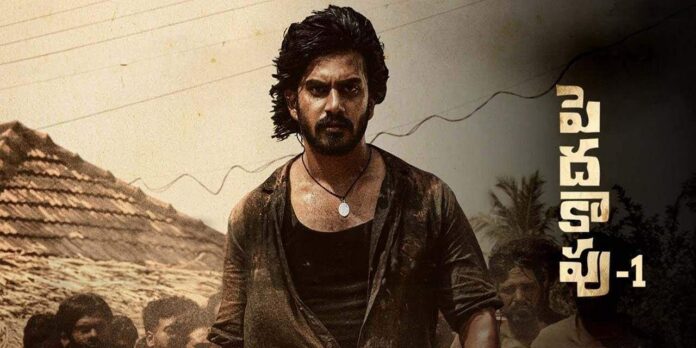The biggest con(tradiction) of Peddha Kapu is it targets the Kapu community and lures them with a title & a premise promising a showreel of injustices and a rise to power — only to display a certain political party headed by the members of Kapus’ rival caste, in a favourable, meritocratic light. Despite being set in 1982, the depiction of solidarity across caste lines in Peddha Kapu feels like a function of times more recent. With the state elections in Andhra Pradesh less than a year away, the positive depiction of the aforementioned party sticks out. If anti-incumbency propaganda was a genre, Peddha Kapu would fit like a glove. The political overtones aside, the film in itself is burdened with narrative & technical shortcomings that leave a lot to be desired.
Cast – Virat Karnna, Pragathi Shrivastava, Rao Ramesh, Srikanth Addala, Tanikella Bharani
Director – Srikanth Addala
Like many Telugu films, Peddha Kapu starts with a flashback of its male and female leads as children. But unlike other prelogues which give a cute context to the couple’s backstory, the gory origins of this entire film’s drama is etched out here. Cutting immediately into the present, we are introduced to the titular Peddha Kapu (Virat Karrna), which we find out is less of an explicit caste title and more of an honorary title for a town’s protector. Between the two warring parties played by Rao Ramesh and Aadukulam Naren, we see the town’s people suffer. Despite peddha kapu & co-working under Rao Ramesh, the film never displays the latter as a benevolent giant and his rival as the brute. These two characters keep changing sides, coming off as good once and bad in another moment. In the end, the takeaway feels clear, despite the confusing treatment. Anybody who has received power as an inheritance is bound to abuse it and justice can only be restored if a common man rises to save everyone. The film, obviously, also shows that the common man is a beacon of both righteousness and anger.
The anger in Peddha Kapu is not as palpable as it is incessantly jarring. Early on in the film, Easwari Rao burns the books of her young children when they are studying, telling them that education has no importance in their working-class life. Later on in the film, when she is offered a chair to sit on in a police station, she yells at the cop for giving her more respect she deserves and sits firmly on the ground. The film also hints at a migration, due to riots done by upper-caste overlords. The film itself depicts the Godavari region in sharp tones of fiery orange and saturated sepia, making it seem less like the green, happy place we usually see in films & more like a civil war-ridden area. The film’s cinematography by Chota K Naidu is one of its few redeeming aspects, as is the makers’ decision to shoot the film in proper regional locations. It gives the film a lot of depth and dimension, aspects which the story or direction never has.
Peddha Kapu‘s characters are not suffering as much as they are insufferable. Here are people with so much trauma and anger, and yet they are written so unidimensionally. The writing of the film is mostly directed towards packaging the pain of its vox populi with such a pitiable and exploitative gaze. In such a situation, one cannot help but receive the oppression of entire communities here with such apathy.
The film’s writing also reflects severely on its pacing, its endless action scenes which are practically fillers for the weak performances. Virat Karrna is not only the film’s protagonist, but also its chosen one and yet, the character feels so passive. In a film about larger events and even larger causes, he seems to be lost. The overly melodramatic tone of the film, as well as its sorry depiction of women, who are always being threatened of rape, only makes everything worse. But nothing is quite as bad as the film’s loud background score, which rightfully earns the “assault on the senses” epithet.
I have always considered anger as a beautiful emotion. It is mostly not positive, sure, but there are times when one’s anger has cathartic, curative effects. This is particularly true when the oppressed channelise their anger to fight against injustices. But this film has sadly proved that anger can also be an empty emotion, and that is really not the takeaway I hoped I would walk away with.
#frustrating #shallow #political #thriller #Cinema #express

